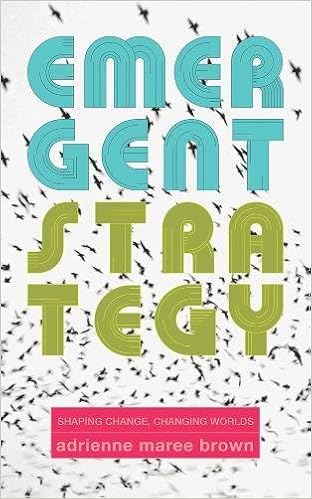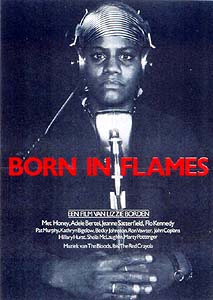Year in Reading — 2019
by Christopher Brown
The book that
consumed me the most this past year was an old one, and one I had read before,
albeit in a different translation. Njal’s Saga is a 13th century epic about a
lawyer in 9th century Iceland who specializes in complex settlements
of family feuds. That the settlements never stick for long is kind of the main
point of the story—someone always breaks the peace, and the cycle of violence
renews over generations. I re-read Njal
in search of the deep roots of the lawyer story, and it holds up well in that
regard, especially since the system of proto-torts that bound that society
together was very close to our own Anglo-Saxon roots. More surprising was to
see how much the saga works in some of the same ways as a science fiction
colonization story—a tale of people settling a hostile landscape in which the
only other human inhabitants found upon their arrival were a few Irish hermits
sequestered in coastal caves, and a story that shows how the basic systems
human societies create to resolve disputes by means other than violence are the
essence of government.
In my year-end round-up here for 2016, I talked about another of the Icelandic
sagas, Laxdaela
Saga, and its
storyline about Unn the Deep-Minded, a female Viking and sage who found herself
leading her people and managed to briefly establish a kind of intentional
community founded on equitable distributions of property, the abolition of
forced servitude, and more just governance. The negative space of those stories
opens portals into possibility, in the unrecorded histories of those who tried
a different path, the kind of utopian path that small groups can manage where
large permanent settlements cannot.
The world of Njal,
crippled by the unceasing blood feuds of men who divided up the land and
reflexively drew their swords to settle the merest slights, was also the world
of Unn, who founded a community based on an ethos of sharing. That the world of
Unn could only exist as an ephemeral island in a sea of Viking raiders tells a
lot about the challenges of constructing utopia, even in terra nullius.
The search for
examples of other such islands drove the wide-ranging research reading I
undertook this year while working on my new book, Failed
State, about a lawyer representing
people who have been hauled in front of a post-revolutionary justice tribunal—a
utopian legal thriller, to bookend my dystopian legal thriller, Rule
of Capture, which came
out this past summer. Utopia is nowhere, but it is rewarding to search for.
I learned that
Gudrun Ensslin called consumer society “the raspberry Reich,” and that her
comrade in arms Andreas Baader insisted on wearing his favorite hip-hugging
velvet trousers instead of army fatigues even while training for combat at a
PLO camp in the Jordanian desert. The
Baader-Meinhof Group
by Stefan Aust, a journalist who worked with Ulrike Meinhof in the early days and
was exceptionally close to the material, is a remarkable examination of how youthful
political activism evolved into armed struggle in West Germany. It was one of
many books about revolution and justice I read or re-read, including a number
from or about Germany: Peter Weiss’s masterful The
Investigation, which
repurposed transcripts from the Frankfurt Auschwitz trials as the material for
a remarkable stage play; Hannah Arendt’s Eichmann
in Jerusalem; Abby
Mann’s Judgment
at Nuremberg; and
Leora Bilsky’s The
Holocaust, Corporations and the Law.
I read one new
book in Spanish, El
Comensal by Gabriela
Ybarra (published in English as The
Dinner Guest), an
intense and compelling short novel about the author’s investigation of her own
grandfather’s kidnapping and murder by Basque terrorists in the 1970s. I read
Chinua Achebe’s collection Girls
at War, the engaging
title story of which is a curious example of the way certain writers
romanticize the figure of the female revolutionary (this writer included). I
re-read Graham Greene’s The Comedians, his novel of the Haitian revolution, and
found that the languorous charisma of the author’s late colonial decadence does
not age well. I read Sophie Wahnich’s In
Defense of the Terror,
a fresh critical reconsideration of the French Revolution and its hagiography.
And I read Paul Krassner’s Patty
Hearst & The Twinkie Murders: A Tale of Two Trials, the satirist’s insightful diary of two
very different but both uniquely American prosecutions of political violence in
the 1970s.
Gina Apostol’s Insurrecto was one of the best new books of the year
for me, an innovative story about two women collaborating on a project: a
Philippine translator recently returned to her home country from New York, who
gets hired to help a documentary filmmaker research her own father’s filming of
a Vietnam War movie there decades earlier (think Apocalypse Now or Platoon).
As they seek out the locations from the film, they confront more authentic
atrocities, and uncover layers of erasure and colonization in the process.
I also sampled a number
of utopian novels, from More’s eponymous classic to SF masters like Ursula K. LeGuin’s The Dispossessed (re-“read” as an engaging audiobook) and The
Word for World is Forest,
Kim Stanley Robinson’s Pacific Edge, and Aldous Huxley’s Brave New World. I even re-read chunks of James Hilton’s
Shangri-La fantasy Lost
Horizon, which I had
read as a teen. More interestingly, many of the books I picked up this year for
other reasons turn out in retrospective consideration to have been works I
would categorize as utopian. Longer by Michael Blumlein is a beautiful science
fiction novella about age and longevity, from one of our most unique
contemporary sf writers, a physician who at the time he was working on the book
was also facing the cancer that sadly took his life this fall. (Blumlein’s Thoreau’s
Microscope, like the
Krassner part of PM Press’s outstanding Outspoken Authors series edited by
Terry Bisson, is another amazing one I had the fortune to read this year,
especially memorable for the title essay in which the author considers the
wonder of his own cancer cells as viewed through the microscope.) Jessica
Reisman’s The
Arcana of Maps compiles
a beautifully written array of stories about communities of people trying to
build better realities free of conflict. Tears
of the Trufflepig, the
debut novel of Fernando Flores, is a literary dystopia of the Texas-Mexico
borderlands that somehow harbors a utopian mirror in the memory of the reader.
And Erik Davis’s High
Weirdness: Drugs, Esoterica and Visionary Experience in the Seventies interestingly synthesizes the utopian
proclivities found in the works of Robert Anton Wilson, Terrence McKenna and
Philip K. Dick and their tripped-out searches for paths to higher awareness.
Ecological
concerns appear in most of those utopian books, and much of the nonfiction
ecology writing I read this year also straddled the utopia/dystopia axis, for
obvious reasons. Silvia Federici’s Re-Enchanting
the World: Feminism and the Politics of the Commons collects an engaging body of radical
essays on capitalism, feminism, and our relationship with the land. Ashley
Dawson’s Extreme
Cities: The Peril and Promise of Urban Life in the Age of Climate Change argues the utopian potential to reorganize
more equitable and just community structures in response to the threat of
climate crisis. The
Uninhabitable Earth by
David Wallace-Wells is more grim, a travelogue of what he presents as the
inevitable state of the near-future world absent dramatic action to change our
collective behaviors. Seeing Like a State by James Scott weighs against the
possibility of utopia, and maybe even of any authentic capacity for pur
collective self-improvement, with an incisive critique of the hubris inherent
in human efforts to engineer better political economies atop natural systems. Along
with Scott’s more recent Against
the Grain, a deep
history of the Anthropocene which I mentioned here last year, a compelling case is made that the only
real solutions to our current ecological problems lie in a radical reworking of
some of the fundamental socio-economic structures that were created by (and
helped create) the agricultural revolution—a revelation of impossibility that
suggests the Cassandras like Wallace-Wells may be more accurate in their dismal
prognostications than I am inclined to believe.
As tonic for all
this, at the end of the year I discovered a book called Frauen
Auf Bäumen (Women in Trees) by Jochen Reiss, a book
of found amateur photos of just what the title promises. I am not sure why, but
when I picked the book up for my wife and daughter, I thought it was the most
utopian thing I could find, encoding some oblique answers as to where a
healthier future lies. Maybe even by climbing back into the trees, or at least
planting enough of them to start our way back.
Christopher Brown’s novel Tropic of Kansas was a finalist for the 2018 Campbell Award for best science fiction novel of the year. His latest novel, Rule of Capture, was published by Harper Voyager in 2019. He lives in Austin, where he also practices law.

















